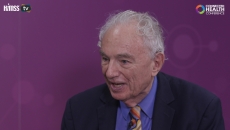Artificial Intelligence
Japanese giant Sumitomo Dainippon Pharma and Oxford-headquartered AI-driven drug discovery company Exscientia yesterday announced that they have created a new compound which is in the process of entering human clinical trials in Japan.
The five-year project will focus on enabling faster medical research innovations, protecting against global health crises and improving access to care, the company says.
The vendor surveyed provider organizations and found a walk-don’t-run approach to artificial intelligence – administrative, then clinical – unfolding across the industry.
Whole Brain Foundation President and founder Charles Atkinson says the technology envisioned by psychologist B.F. Skinner decades ago is now here with AI.
SPONSORED
Digital health requires a healthy data pipeline that’s aggregated, normalized, and deduplicated, and ready to be integrated into workflows across the health ecosystem for care coordination, analytics and machine learning.
Innovation
Improvements in patient outcomes and population health will be enabled as a culture of data-driven decisionmaking takes root and quality improvement processes mature.
Emerging Technology
These trends are good news for provider organizations looking to improve care, gain efficiencies and trim costs, an InterSystems vice president predicts.
While cloud vendors offer a basic infrastructure environment, it’s up to the healthcare client to design it and own it, says BIDMC's Manu Tandon.
Susannah Rose, director of patient experience research at the Cleveland Clinic, will be talking about ways to use tech and improve care at HIMSS20.
The executive director of research at the cloud IT giant describes what CIOs and other healthcare leaders should be looking for at the global conference in March.

